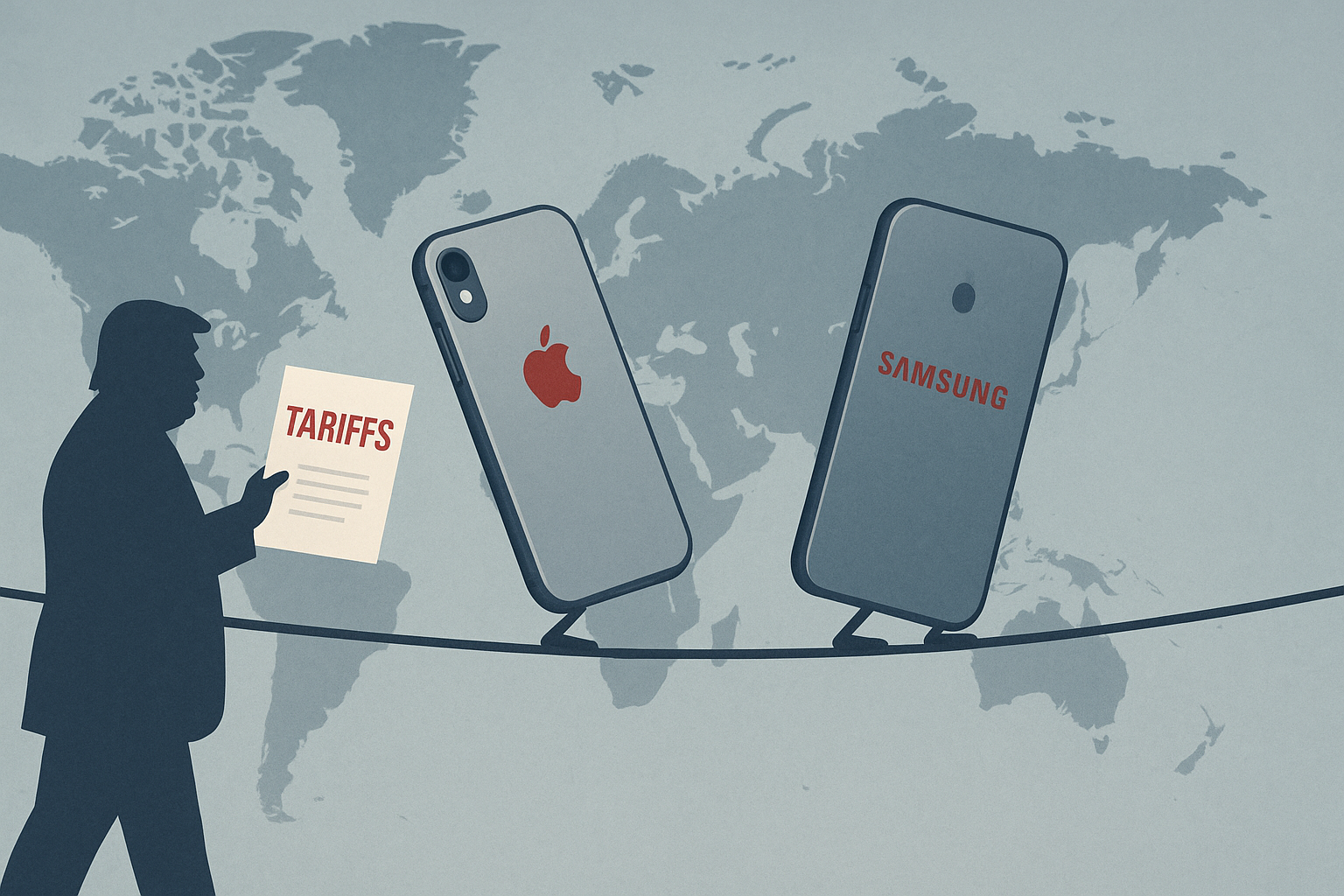Former President Donald Trump stirred the tech industry pot yesterday by announcing that his proposed tariffs on Apple products would also hit Samsung devices. "They all come from the same place," Trump declared during a campaign stop—a statement that geography teachers everywhere might take issue with, considering Samsung's South Korean headquarters.
The markets reacted with their typical nervous energy. Apple shares dipped before rebounding, while Samsung's ADRs wobbled through their own uncertain dance. Nothing catastrophic, mind you, but definitely the financial equivalent of watching someone try to parallel park while eating soup.
I've been covering tech trade politics since the first Trump administration, and this latest pronouncement fits a familiar pattern. Politicians love drawing hard lines around what are, in reality, incredibly fluid global supply chains.
Look, the truth is messier than campaign soundbites allow. Apple may wave the American flag from its spaceship-like headquarters in Cupertino, but its manufacturing stretches across China, Vietnam, India, and beyond. Samsung, meanwhile, has been actively reducing its Chinese manufacturing footprint for years now, shifting operations primarily to Vietnam and India.
So when Trump claims "they all come from the same place," he's... well, he's oversimplifying to the point of inaccuracy.
What's particularly interesting here—and I checked with three supply chain analysts who confirmed this—is how these tariff threats might reshape competition rather than just raising prices across the board.
If both Apple and Samsung face similar tariff structures, you might think it creates a competitive wash. Economics 101, right? But markets rarely behave that neatly.
Instead, we could see Chinese manufacturers like Xiaomi and Oppo gaining ground globally. Or perhaps this accelerates the already-in-motion exodus of manufacturing from China to countries not in the tariff crosshairs.
The smartphone market has matured considerably in recent years. People are holding onto their devices longer (I'm typing this on a three-year-old iPhone, with no immediate plans to upgrade). Add a tariff-induced price hike, and watch those replacement cycles stretch even further.
This could actually hurt Apple worse than Samsung. Why? Because Apple depends more heavily on the American market for its profits.
From what I've seen covering tech policy since 2017, this represents what one might call "gesture economics"—policy proposals designed more for their signaling value than their practical effects. The gesture says "I'm tough on China and big tech simultaneously," while the economic reality is... complicated.
The markets understand this game. That's why we didn't see investors heading for the exits. They've developed a sophisticated filter for distinguishing between campaign rhetoric and actual policy implementation.
(For what it's worth, three different fund managers I spoke with yesterday described their reaction as "cautious waiting" rather than "panic selling.")
For tech investors, this isn't a time for fear but for preparation. Supply chain diversification was already happening; this merely adds momentum to an existing trend.
The irony, of course—and there's always irony in trade politics—is that attempts to simplify global commerce through blunt instruments like tariffs typically end up creating more complexity, not less. It's like trying to untangle Christmas lights by throwing them against the wall. Feels decisive but creates more problems than it solves.
Meanwhile, both Apple and Samsung will continue their elaborate dance of component sourcing, assembly location-shifting, and pricing strategies. The choreography just got more complicated, but these companies have been rehearsing for this performance for years.
The tech tariff tango continues. And depending on where you're standing when the music stops, you might find yourself with either a more expensive phone or a completely different dance partner.




